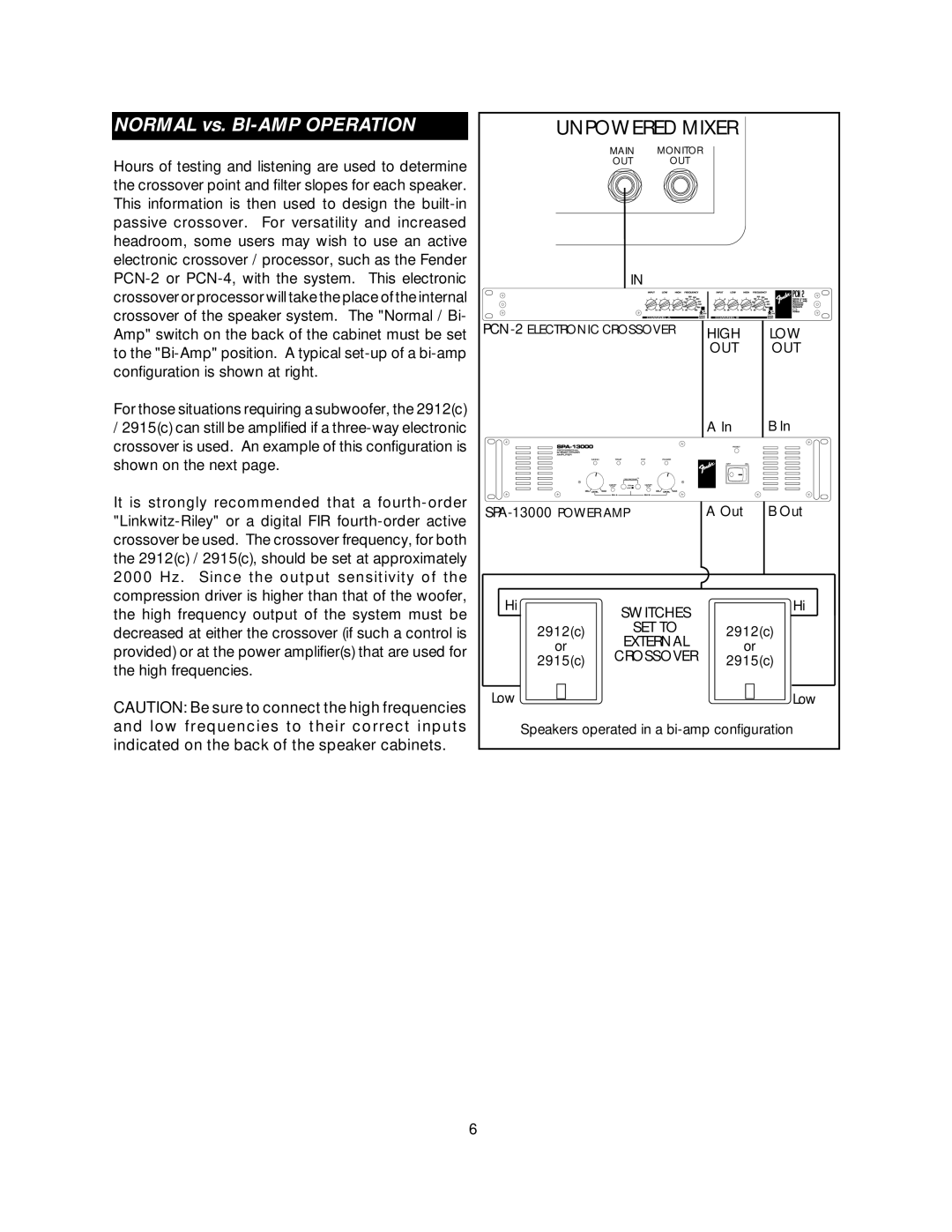2912(C), 2915(C) specifications
The Fender 2915(C) and 2912(C) electric guitars represent a fusion of classic design and modern innovation, appealing to guitarists of all styles and skill levels. Both models are part of Fender's efforts to refine their instruments, while preserving the essence and tone that the brand is revered for.The Fender 2915(C) is particularly known for its versatile sound palette, making it suitable for various genres, from rock to jazz. It features a slightly heavier body, which enhances sustain and resonance. The guitar is equipped with modern pickups, providing a clear and balanced output. The 2915(C) often showcases a fast neck profile, allowing players to execute complex riffs and solos with ease. A notable technology in this model is Fender's Noiseless pickup system, which significantly reduces unwanted interference, making it ideal for performance settings.
In contrast, the Fender 2912(C) offers a lighter body and a more traditional aesthetic, appealing to purists who appreciate vintage styling. Its fretboard is crafted from premium woods, giving it a warm tone that enhances the overall sound character. The 2912(C) is often lauded for its user-friendly setup, making it a great choice for beginners. Fender has integrated their advanced tremolo system into this model, promoting enhanced pitch stability while allowing for expressive vibrato effects.
Both models boast a variety of finishes and colors to match personal style preferences, ranging from classic sunbursts to eye-catching metallics. Players will appreciate thoughtfully designed features such as rolled fretboard edges, which enhance comfort, especially during long practice sessions or performances.
Construction quality is consistent across the 2915(C) and 2912(C), featuring solid body materials that contribute to durability and longevity. Fender's attention to detail, from the hardware to the finish, ensures that each guitar not only sounds outstanding but also looks impressive on stage.
In summary, the Fender 2915(C) and 2912(C) electric guitars cater to a broad spectrum of musicians by combining traditional craftsmanship with contemporary innovations. Whether you choose the versatile 2915(C) or the classic charm of the 2912(C), you are investing in an instrument that is built for performance, playability, and enduring sound quality. These models continue to uphold Fender's legacy while inviting new generations of guitarists to explore their musical potential.

